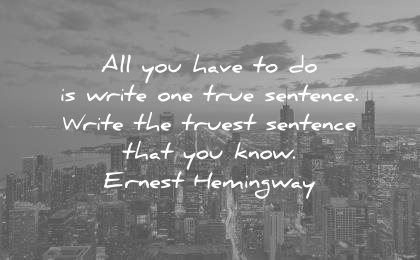
22 Mar THE ‘WRITE’ WAY FORWARD FOR CAREER TRANSITIONS
If you are even half serious or interested in making a career transition, career change or developing your own career, then here is something simple and powerful to get you started right away. And it’s based on solid, scientific research. It’s called Expressive Writing.
In 1994, Dr. James Pennebaker, a professor of Psychology at University of Texas and his team ran a study. In an experiment with 63 recently unemployed professionals, they split them into 3 groups. The first group was asked to write about their unemployment and how they felt about it. The second was asked to write, but not assigned any specific topic/subject. The third was not asked to write at all.
It was found that the first group, those assigned to write about the thoughts and emotions surrounding their job loss, were reemployed more quickly than those who wrote about non- traumatic topics or who did not write at all. Expressive writing appeared to influence individuals’ attitudes about their old jobs and about finding new employment rather than their motivation to seek employment.

Write your way forward in a career transition
Pennebaker believed that by writing, they were able to download and declutter the chaos of their minds, and organise their thoughts in a way that allowed them to move forward in a meaningful way.
What Dr. Pennebaker and his colleagues had found, has now become a tried and tested way to get clarity when we find ourselves stuck in a career rut and move out of it. Spending focused time writing about your thoughts and feelings about your career direction, especially the plans you may have to do something new, can make a big difference to materializing these plans quicker and more concretely.
Expressive writing is not so much about elegant writing or the facts about the events. In fact, it pays more attention to how we may have processed certain events in terms of our feelings and made meaning out of it. For expressive writing to be effective, it must be authentic.
What are some practices which can help you get started with expressive writing:
- Write only for yourself – your writing is a way to pour out your emotions, don’t make it about style or elegance which needs to pass the test of some other reader
- Write in a flow – give yourself at least 10-20 minute to keep writing and don’t force structure, punctuation, grammar correctness.
- Observe your energy – when you start expressive writing, you may find that sometimes you feel heavy and sad, usually just around the time you begin the practice of expressive writing. It’s normal to feel like this and the feeling will go away in a couple of hours. As you continue the practice of expressive writing, if at times, you find yourself, completely frozen or unable to write, come back to it another time.
Expressive Writing as a tool to get started with Career Transition/Career Change
Doing work which feels unsatisfying/frustrating/stressful/no longer exciting/not aligned to how we see ourselves, produces strong emotions. The idea of a career change/transition can also make us feel anxious/nervous/uncomfortable/foggy along with experiencing excitement/thrill/adventure, a perfect cocktail of emotions which ends up confusing us.
Writing about these is the first step to acknowledge them and their impact on us and declutter our minds. Not just with jobs that we don’t like, expressive writing is used to work through several difficult experiences. And it can be remarkably useful for career change/career transition and often far simpler and more actionable than many other steps we take like posting our resume on innumerable job boards and making attempts to ‘network’ our way into other jobs. These steps come later.
First, download the feelings about your current work. Some questions to get you going
- What is your current work doing to you
- Your mind and body
- Your relationships
- How you see yourself

Be honest in acknowledging and writing about what your current work is doing to you
And if writing is just not your thing, speak into a voice recorder, but get it out of your head, where it’s making a lot of needless noise, and into a place from where you can make sense of it and take it forward. Remember, that “The first draft is just you telling yourself the story.” –Terry Pratchett
Research seems to suggest that getting difficult emotions out of our heads by writing about them, frees up cognitive resources to work towards positive goals and the tasks that you want to complete. The research, funded by the National Science Foundation and National Institutes of Health, provides the first neural evidence for the benefits of expressive writing, said lead author Hans Schroder, an MSU doctoral student in psychology and a clinical intern at Harvard Medical School’s McLean Hospital.
Writing about the Future Self to enable Career Transition/Career Change
After clearing the space by acknowledging what your current work is doing to you, direct your feelings and energy to writing about your best possible ‘Future Self’. This is what you want to see yourself as on the other side of a career transition/career change – create a rich picture of this future self through writing.
Imagine that you are the creator of your future self and you have the clarity, confidence and skills to take your career to the place where you want it to be. You are now feeling successful and fulfilled in what you are doing.
Now write about this state of being. Most people find that when they write, they are able to access their emotions and thoughts in a stronger, more enabling way than when they speak. Writing also helps to home in on areas of experience that need further exploration and discovery, and can help to map out a future path.
What are some tips to making writing about the future self more effective?
To use writing for gaining clarity around career purpose and career goals, it is helpful to write about goals which are
- Challenging but attainable: For instance, if a part of your career change plan is about developing a new skill, then pick a skill level which is attainable and is aligned to the kind of future self you want to see yourself as. Then journal your progress towards that.
- Doable where you have support: It’s exciting and growth inducing to pick some goals which are slightly difficult and stretch you, but where you know that with some support, it is possible to accomplish them. The support can be through an expert like a career coach or your ‘success partners’ who are on a similar journey with you and you hold each other accountable for taking specific steps towards progress.
Writing about your career concerns, and writing down your goals, will surely take some of the worry out of career transition/career change. It will open up new possibilities and give you a renewed optimism and clarity in working towards a new you. So, ‘write’ your way forward through a career transition.

Kavita, an alumna of IIM Ahmedabad, brings 20 years of experience in Experiential Learning, Coaching, Personal Growth & Change. Her forte is Career Transition Coaching and Leadership Development for mid-senior individuals, helping them find success and fulfilment at work . She also teaches Career & Self Development courses at leading management institutes including IIM Kozhikode, IIM Udaipur, IIM Indore and at the IITs.

